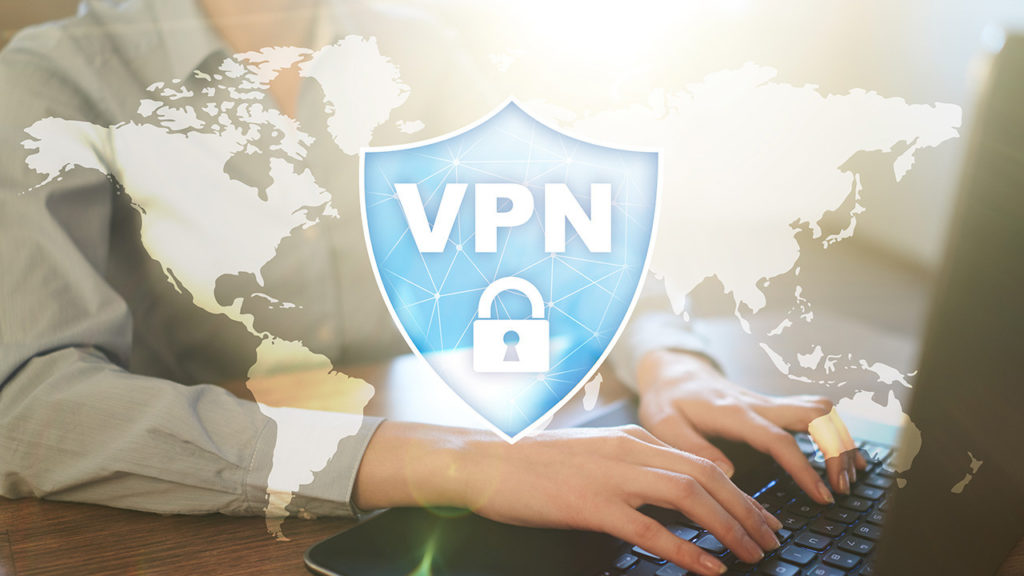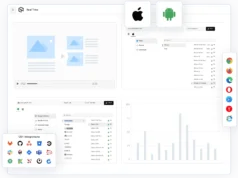
In a time when the Internet is our source for pretty much everything that we need in life, we don’t really think about our privacy whenever we hit search on something. We believe we are safe behind the veils which are our screens – but that is hardly the truth. With the cyber-threats nowadays, and even marketing companies collecting our data to send us ads, we have never been more exposed.
This is why anonymizing your searches should be your top priority at this point. Everyone has a right to privacy – and as much as we might agree to all those privacy policies, there is almost never anything completely private about our browsing. Thankfully, there are a few ways for you to anonymize pretty much everything that you do online. Here are the most efficient ways for you to do so.
Go for a Good VPN

Whenever you have a big privacy concern, the VPN will always be your best friend. Standing for Virtual Private Network, VPN is an online tool that will allow you to access a public network – but all while keeping you hidden beneath a protective mantle. Your public connection will be turned into a private, secured one – a network that your ISP will not be able to track.
VPNs will anonymize everything that you do through any app, going from your browser to your messaging apps – and even other online connections such as Skype. Your entire device will be protected no matter what app you decide to log into. According to proxy- store.com, a VPN is likely one of the most efficient ways to ensure that you remain anonymous throughout everything.
Opting for Proxies

If you do not use any other apps or are simply on a budget, you might want to go for proxies. Proxies are in a way like VPNs – but they only stretch as far as your browser does. They will encrypt your traffic whenever you are accessing a website, taking you through a “replacement” server and making it seem like you are accessing from another location.
In other words, to the website that you are trying to access, it won’t feel like you are anonymous – it will just see another IP address. And it will be an IP address that obviously won’t be yours. It will be like you are going undercover, and the website will not be able to collect any of your personal data.
Bear in mind that this will only be effective when you are on your browser. If you browse through any other apps – e.g. Skype or the Messenger app – proxies won’t be able to cover you there. This is why you might not want to go for a proxy if you have sensitive apps to handle – only go for it if you have some trivial browsing to do.
Find an Anonymous Browser

Nowadays, everyone is using Google Chrome, Firefox, and a variety of other browsers to look up information on the Internet. However, the only issue here is that these browsers will collect your data – and will not only allow other websites to see your IP, but they will also be able to push ads in your direction. Moreover, with these browsers, you may not be able to browse some geographically blocked content.
Still, some browsers will allow you to browse anonymously – hiding your IP address and encrypting all of your traffic. TOR browser is such an app, and in a way, you may say that it acts pretty much like a proxy or a VPN. Standing for The Onion Router, TOR works in a way that is similar to an onion and its layers – providing multi-layered encryption which makes it almost impossible for anyone to trace the traffic back to the original user.
And the best part of this browser is that it is completely free. Anyone can download and install it if they want to have an anonymous presence – and it will keep your data safe from anyone trying to sneak a peek at your traffic and data.
Trust Different Search Engines

Nowadays, pretty much everyone uses Google and Bing – and those who do not have been faithful users of Yahoo. This trio is pretty much everywhere, as it is very user-friendly and allows us to easily find the information that we are looking for.
Still, the problem with these search engines is that they are not very privacy-savvy. Have you noticed that when you simply send a message to another person about a particular product, you already get ads concerning that product? Or let’s say that it’s Christmas and you are looking on a website for a Christmas tree; the next thing you will see are ads about ornaments that you may use to decorate the Christmas tree.
Nowadays, we have some privacy-oriented search engines such as DuckDuckGo that will allow us to do the same level of browsing – without subjecting us to all that data collection. Since data will not be collected, you will not get any personalized results – but at least you will know that your personal details will only be accessed by you.
Go Incognito

If you do not want to install any fancy VPN, search engines, or anything else on your computer, you may use something everyone has access to – and that is “private window mode.” Each browser allows you to open a separate “incognito” window that will not save all your history and cookies.
Bear in mind that this mode is not private to every extent. For instance, while you are browsing, other websites will still be able to see your IP and send you targeted ads while that window is open. That data will only be deleted when you close that particular window – and it will only be deleted from your computer.
That is to say, incognito mode is a good option if you want to browse anonymously on another person’s computer. This way, you will not leave any traces that you actually used that computer.
Wrap Up
The Internet has eyes everywhere – so, if you don’t want every search you do to be traced right back at you, then you might want to go anonymous. No matter if you switch to private windows or install a more advanced VPN, at least you will know that you’ll be more protected from targeted ads and hackers.














